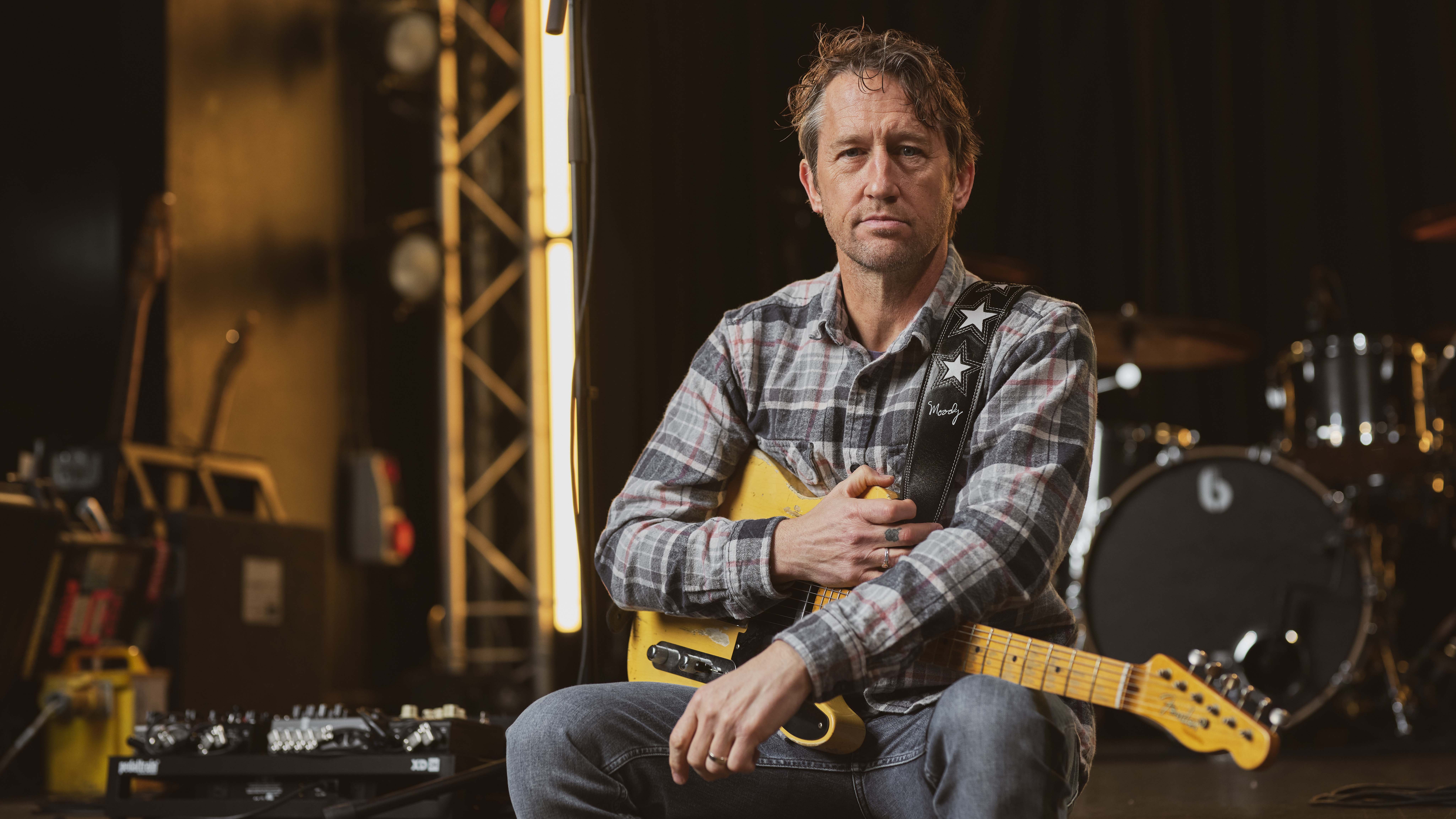“I got kicked off my Fender deal because I couldn't stop using a Les Paul – I can't really live without one”: Lee Downer from Lowlives picks his 3 essential pieces of gear
From his love of grunge to valuable vintage guitar advice and selling Slash a guitar worth 13K, Downer talks gear, music and life in alt-rocks hottest new band
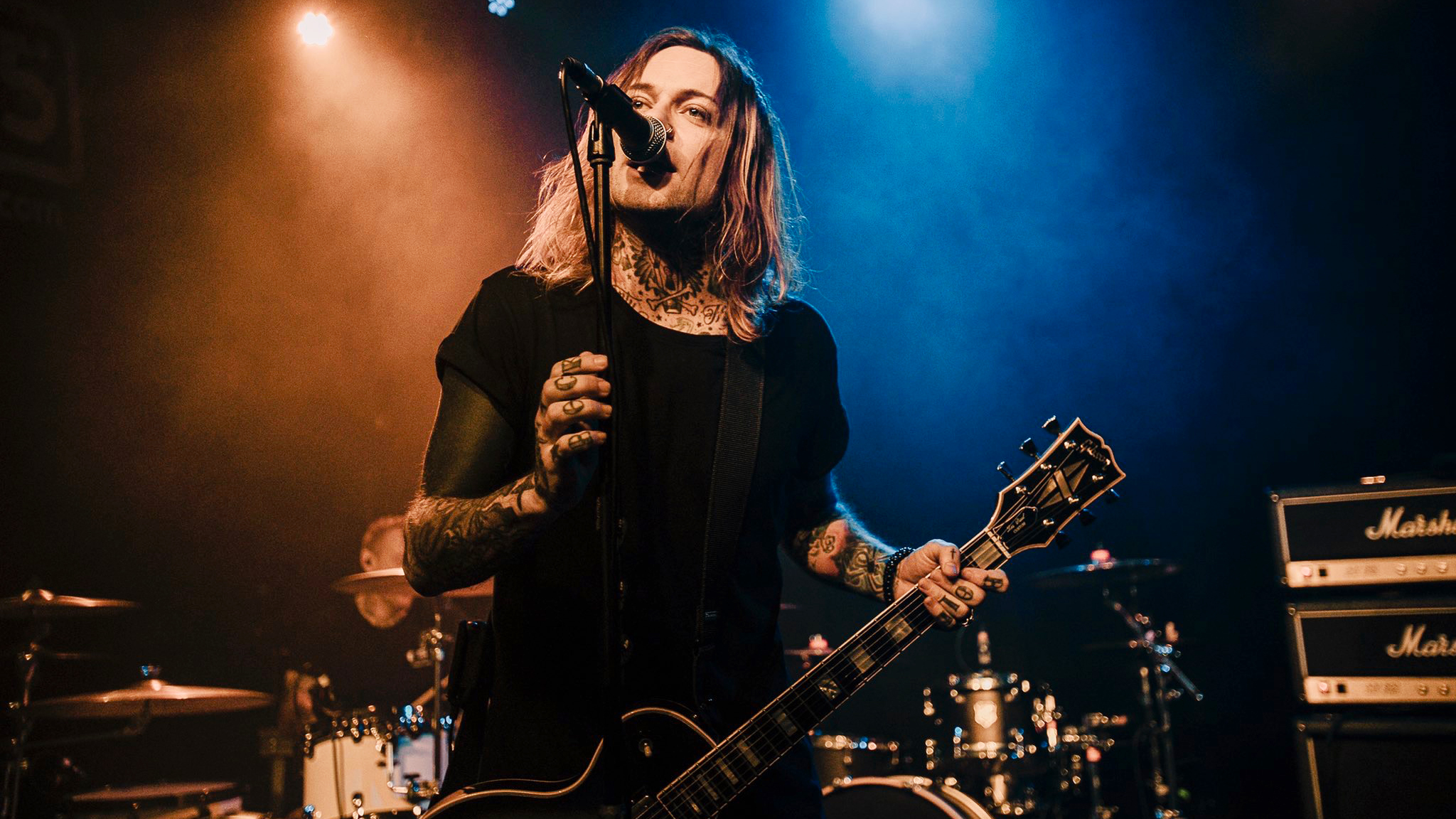
Want all the hottest music and gear news, reviews, deals, features and more, direct to your inbox? Sign up here.
You are now subscribed
Your newsletter sign-up was successful
Pearl Jam tops the charts with the release of their new record, Smashing Pumpkins are making headlines with the announcement of a new guitar player and Shania Twain is headlining festivals – if we didn’t know any better, we’d think it was 1998… From the fashion to the attitude and, of course, the music, the ‘90s are having a bit of a revival at the moment, and we must admit, we’re all for it – and so is Lowlives’ frontman and guitarist Lee Downer.
Now heading up the grunge resurrection with his band, Lowlives, with their debut album Freaking Out due on 31 May via Spinefarm Records, Downer was once fronting a rather different project as the lead singer and guitarist for nu-metal/industrial outfit, The Defiled. While shifting from heavy hard-hitting metal to emotionally charged alt-rock may seem like an abrupt gear-change, Downer has always proudly worn his influences on his torn-up flannel sleeve, citing early Foo Fighters, Nirvana and Smashing Pumpkins as some of his biggest musical inspirations.
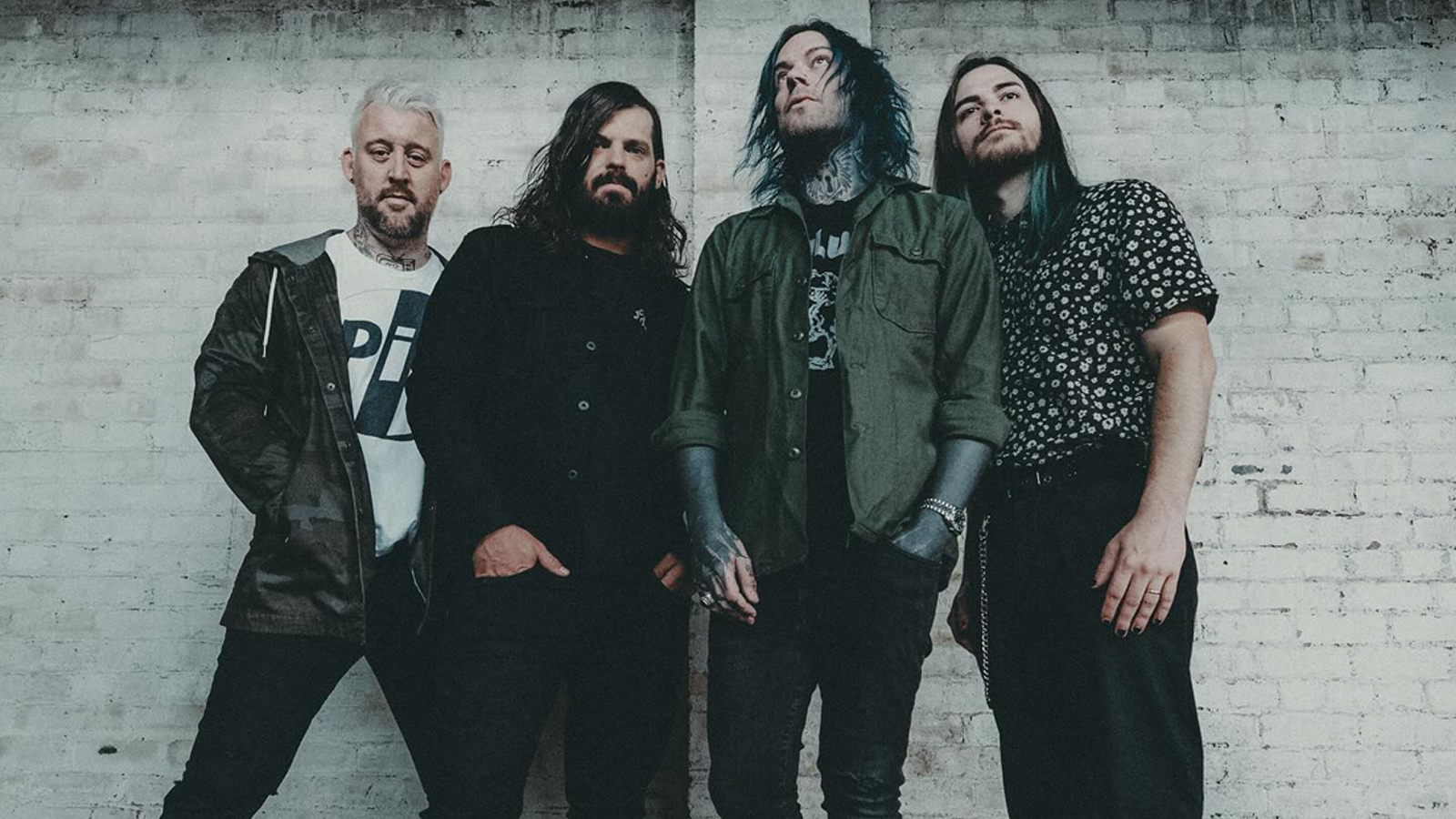
Our first loves were bands like early Foo Fighters, Nirvana, Silverchair and Bush
“We very much lean into the '90s a lot, but I feel like we have our own thing going on, still. I think no matter what we write, me and Luke [Johnson - drummer] in particular, our songs just come out sounding that way – because we grew up in that era, I think it's just kind of in us.
“Our first loves were bands like early Foo Fighters, Nirvana, Silverchair and Bush. I think it's just always in you. Even when I did my old band, The Defiled, there was a little bit of Nirvana poking through.”
We join LA-based Brit Lee via video call from his home office/ gear emporium which is full to the brim with vintage Marshalls and teeming with more retro Gibsons than you can shake your devil horns at – something that shouldn’t come as much of a surprise, considering he doesn’t just front a busy touring band, but is also responsible for buying and evaluating vintage guitars for the music retail giant Guitar Center.
When asked about the early formation of Lowlives, Lee tells us that the switch from metal to alt-rock was a welcomed one and that he found a kindred spirit in drummer Luke Johnson, who has provided the backbeat for everyone from No Devotion and Amen to Beat Union, The Wonder Stuff and Foxy Shazam.
We both grew up loving Siamese Dream and In Utero and stuff like that
“It was supernatural, really. At the end of my old band, I just kind of had enough, man. We went to Dave Grohl's place to do an EP and I wanted it to be really analogue and almost grungy-ish. And it just didn't work.
Want all the hottest music and gear news, reviews, deals, features and more, direct to your inbox? Sign up here.
“A couple of Lowlives songs were kind of on the table for [The] Defiled, but we were just trying to add triplets and double kick to everything, and I was like, ‘Man, this just isn’t working.’ So I stopped doing that.
“The first song we ever had was Burn Forever, which is the first song we ever released. So it was really natural. Every time I pick up a guitar, that's the kind of stuff I write. Luke is very much into the same stuff as well, which really helps. We both grew up loving Siamese Dream and In Utero and stuff like that."
Now, while Corgan and Cobain provided the musical motivation, old footage of a young Dave Grohl and co. taking to the stage at the Brixton Academy in 1995 would provide the spark of inspiration on which Lowlives would base their intoxicating live show – and help shape Lee’s love of a particular selection of Gibson guitars.
“When I started this band, I was going down to Luke's because he lived in Orange County at the time. We started working on some songs together before we worked out what we were going to do – we were both kind of clocked out of music.
“After a couple of songs, we were just discussing things and I said, ‘Oh, have you seen this show?’ Luke was like, ‘Oh, what show?’ And I showed him that [Foo Fighters] gig, it's all on YouTube. And he was just like, ‘What the f*ck?’ He was like, ‘This is the energy that we need to put across live! It needs to be no shit, no electronics, no tracks, no nothing.’
There were three pickup SGs, Explorers, and Les Paul Customs – and to be honest, that's pretty much been all I've used since
“I was kind of too young for Nirvana. I was obsessed with Nirvana, but [Kurt Cobain] was already gone by the point [I got into them]. So I think Foo Fighters was the next thing and just that performance, just seeing William [Goldsmith’s] drum riser shaking the whole time and Grohl's voice is all hoarse from screaming. I think that definitely has shaped my taste in guitars as well, that era.
“There were three pickup SGs, Explorers, and Les Paul Customs – and to be honest, that's pretty much been all I've used since. I've had Fender endorsements and stuff like that, but I got kicked off my Fender deal because I couldn't stop using a Les Paul – I can't really live without one [laughs]."
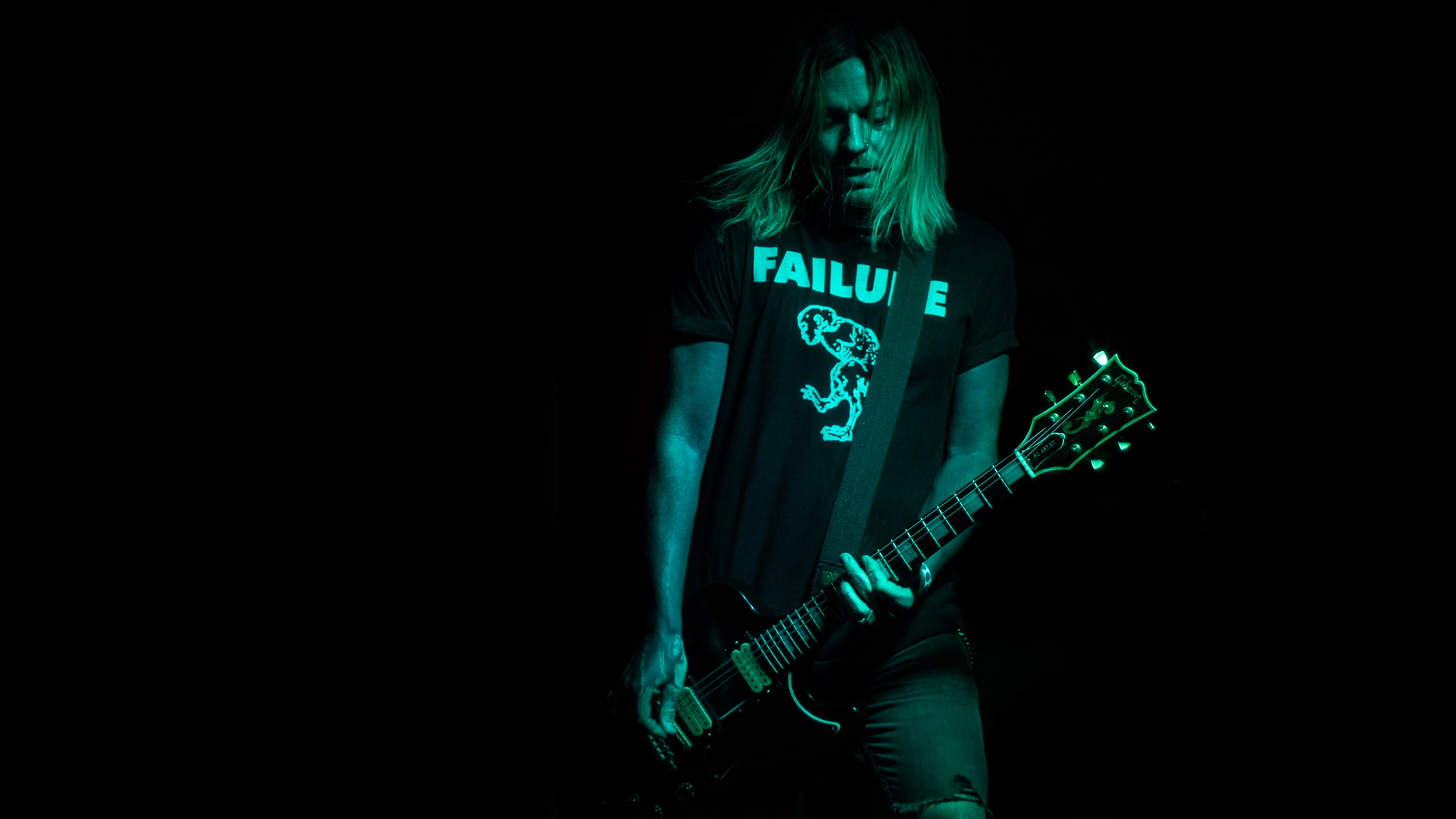
Reflecting on his time at Grohl’s studio with his previous band, Lee said “When we went to 606 to record, they were just like, ‘Use whatever's in there.’ Lou [John Lousteau], the producer was like, ‘Man, if you want to go nose around – like you're not really supposed to – but you can go and have a look through the guitars and stuff.’ I just went through and started opening cases. I just went through all the guitars from that show. Like, I ended up using his white Les Paul Custom for a lot of the tracking.
“The one guitar I always loved of Dave's was the white three-pickup SG – the '70s one, but I couldn't find it. I've said to Lou, ‘If you ever find where that guitar is, I would be very interested in somehow buying it.’”
Since we were talking about guitars, it seemed like as good a time as any to discuss Lee’s three essential pieces of music gear he simply couldn’t live without.
1. 1976 Gibson Les Paul Custom
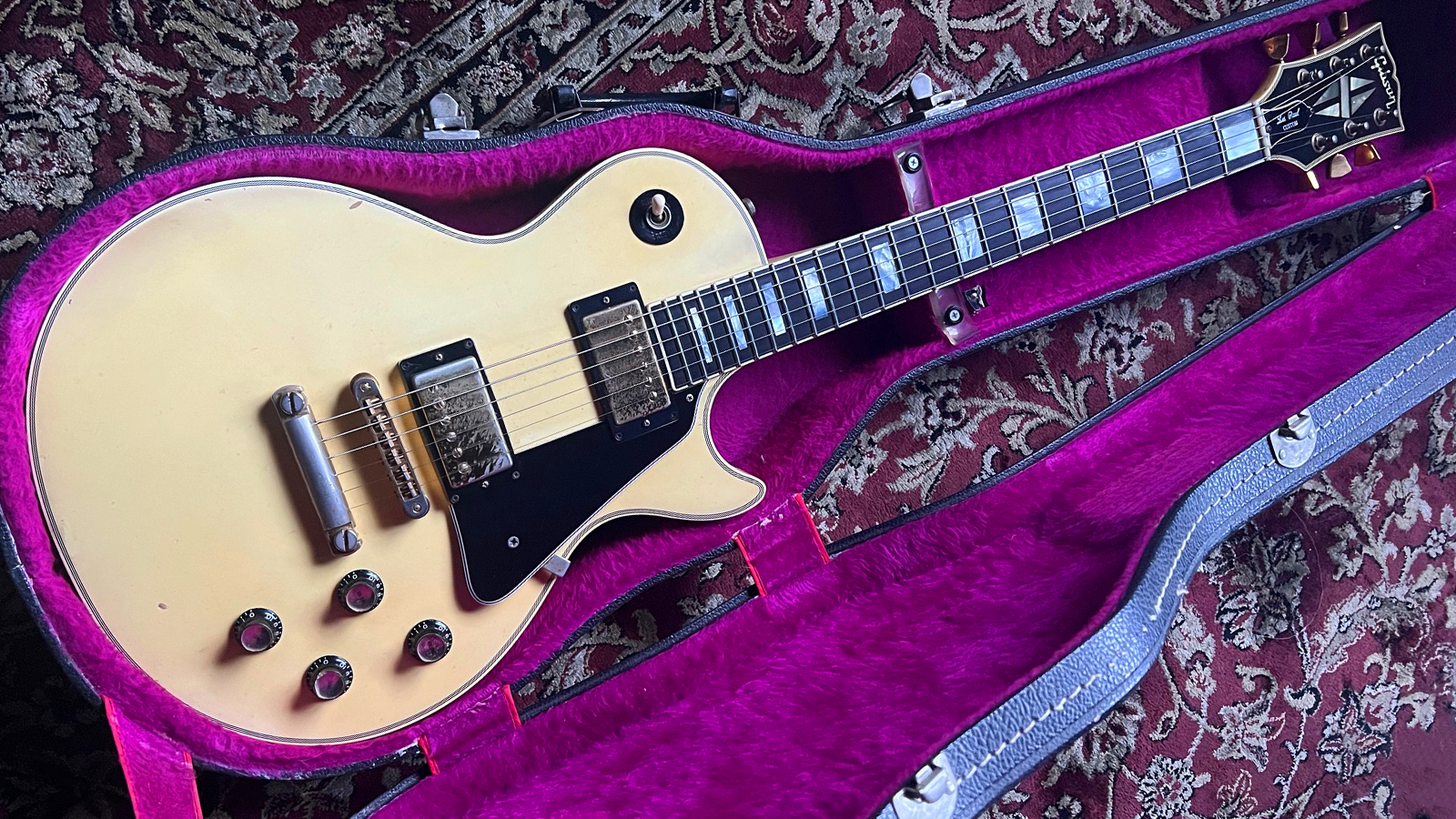
“There's one guitar that every time we go to a studio to record anything or I go and do like a session job for someone and I have a few guitars with me, every time I roll through, every single producer or engineer is like, that's the guitar.” A visibly excited Lee pulls for this beloved yellowed-out singlecut and proudly shows it up to the camera.
“It’s this white Custom. It’s a ‘76. Norland era where there's like no carve whatsoever – it's almost like a f**king flat top. It's real weird. Acoustically, it's the deadest sounding guitar in the world, but plugged in, it's just pure gold.
“I've done quite a lot to it. I ended up buying one of those Emerson [Custom] harnesses that kind of made it a bit more alive-sounding.
“For the pickups, I've managed to get the original covers slammed on, but the pickups are just a Seymour Duncan JB59 set. I’ve refretted it, but surprisingly, it's not had a headstock break."
While this is Lee’s favourite guitar, he didn’t originally intend to use it for the recording of Lowlives’ forthcoming debut album, Freaking Out (released 31 May) – something he definitely regretted.
If you're tracking a record, man, you have to bring a Les Paul with you
“Very stupidly, when we went to England to do the [Freaking Out] record, it was right in the middle of COVID, and we tried to [keep the cost down] as we were doing everything off our own back. We couldn’t afford to bring loads of guitars with us.
“Adrian [Bushby - producer] was going to bring a couple, like a Tele, a Jazzmaster and acoustic, just like overdubby guitars and me and Jaxson [Moore, guitarist] just turned up with the two dumbest guitars to record with. He turned up with an Ernie Ball because he has loads of Stingrays that he mods to just have one pickup, but at this point, he had a P-90 in it with no volume or tone.
“I turned up with a Travis Bean because I was obsessed with Travis Bean guitars at that period. The Travis Bean worked out really cool, but if you're tracking a record, man, you have to bring a Les Paul with you.
“When I got home, I was like, ‘What the f*ck were we thinking?’ When we started getting all the mixes back, it was like, ‘Wow, we really did a f*cking number by not bringing a Les Paul.’ So I ended up going to re-record all my rhythm tracks with that Les Paul, with our friend Beau [Burchell], who mixed the record.
“Nothing has really beaten that guitar. Like, I love the look and the comfortableness of SG Customs but sometimes they're a bit honky sounding."
“I have an ‘81 Explorer”. Lee reaches for a beat-up black Explorer that shows plenty of evidence that it has been used in battle. “This is the only one that's close to that Les Paul in sound. This one's been obliterated. Again, I don't know how I have not broken the headstock on it. It’s ‘76 spec. So it's still like the one-ply guard and the buttons are on the side, which is kind of a pain in the ass, if I'm honest.”
“The white Les Paul is still the best. It's the number one pick."
2. Marshall Super Lead/Marshall Silver Jubilee
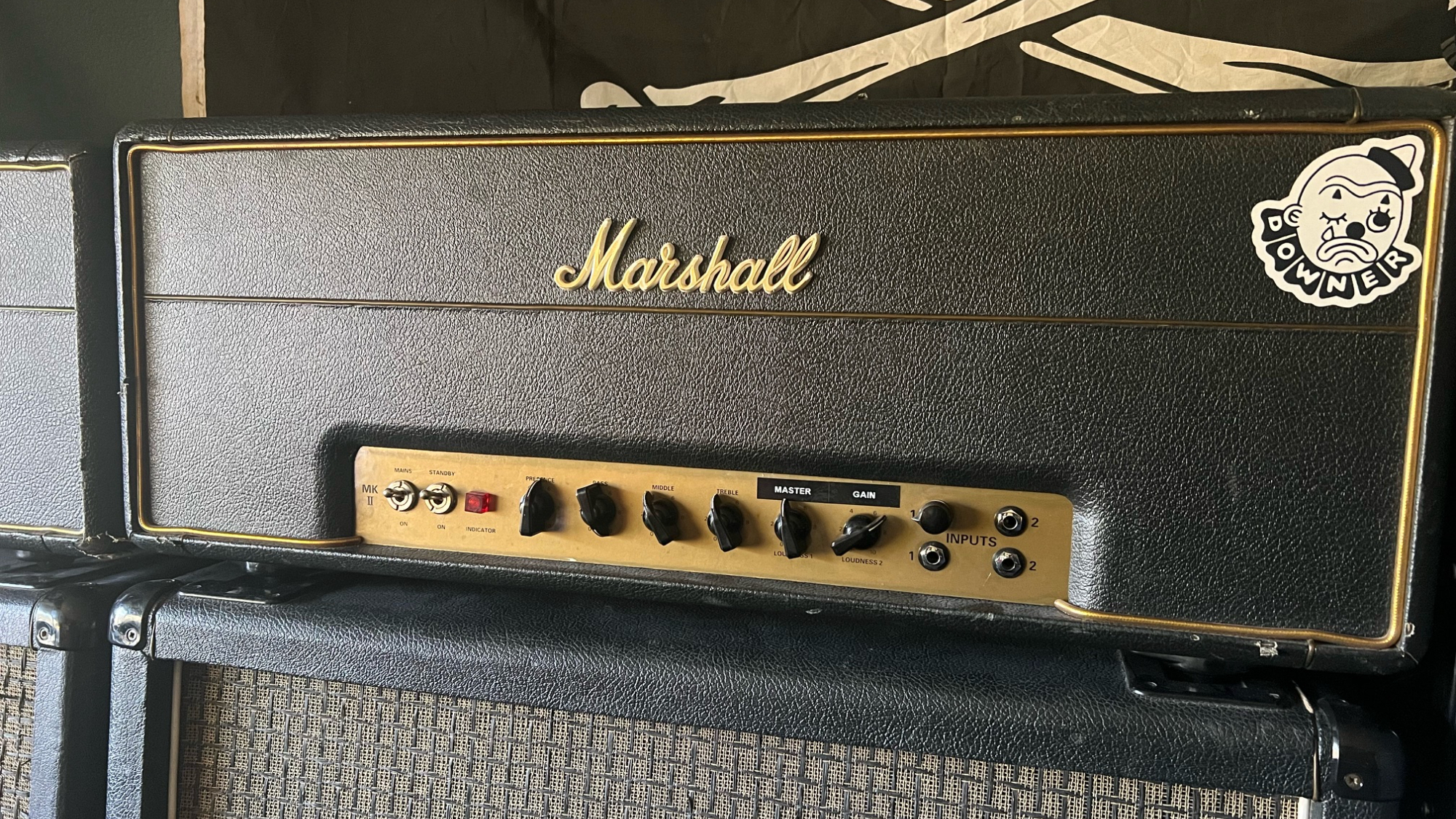
With the number of Marshall amps surrounding Lee, we weren’t surprised to see one from the iconic British manufacturer in his list of essential gear – but Downer does admit that he has tried other brands, but somehow always comes back to a Marshall stack.
“When I was younger, I ventured to other amp companies in my old band, but the first amp I ever loved as a kid was a Marshall. I was like, ‘One day I'm going to get a full Marshall stack.’
“Every time I've gone to use other amps, I just always end up back at a Marshall. Since this band started, the sound is a Gibson into a Marshall. We've tried every other option, but it always comes back down to that.
“I mean, Jaxson, our guitar player, has just done the same thing. He had Marshall and then he went to Orange for a brief minute, and then he just called me, he was like, ‘Man, that Marshall still sounds better than the Orange.’ I'm like, ‘Yeah man, there's just something about it.’ I don't know if it's embedded in us from being kids."
We spot a number of Super Leads and a few Silver Jubilees in the background, so when asked which is his go-to, Lee seems torn between the two, admitting, “Only recently has it been the Jubilee. I don't know why I just never tried Jubilees. I've always [used] modded Super Leads and 800s. I mean, the record is an 800, a modded 800, or we used an ‘87X that was modded by our friend August, who runs a company called Otis Amps.
I've got four Super Leads, and I've had them all modded to two-channel
“He's just a mad genius, lunatic and funny guy – he lives not far from me now. So he did this one for me, which is actually a reissue. It's a 2003 Super Lead that he's made into a two-channel.
“I have a Friedman-modded Super Lead that's made into a two-channel. I wish I was like a volume roll-down purist guy, but I need that instant clean to instant heavy – I guess like Nirvana. It comes back down to that. I've tried using EQs and doing all these tricks to try and do it, but because I'm singing, I'm just not quick enough [laughs]. I've got four Super Leads, and I've had them all modded to two-channel.
So yeah, I would use, normally this is the guy [points to Marshall Super Lead in the background]. I take it everywhere. The August modded one, that's the one if I'm going to record or do a session or anything, that's always the one I would take.
“That said, it's only recently I’ve got into the Jubes. My friend Jack [Tankersley] has one. He plays in the band Wednesday 13. I've known Jack for a very long time and he had one. And I was like, 'That thing sounds heavy.' I mean, they made them because it was their answer to all these people who were modding their JCM800 and Super Leads. And they were like, 'Well, here's the high-gain version.'
“I was like, ‘Man, I don't think it's going to cut it.’ As soon as I played it, I was like, ‘Oh shit, this sounds exactly like what I'm trying to make those sound like [points to the Super Lead].’
“I have two Jubilee heads out here and one head in England. Also, when we went to England last, we were kind of borrowing 900s or using an 800, and I would put a pedal in front of it – but It just wasn't quite right.
“When we went this time, they only had one loaner Jubilee head and at the end of the tour, I was like, ‘Look, man, I can't come to England again and this not be available because it's the best-sounding head I’d ever had as a rental – can I buy it?’ Normally they're like, ‘Nah man, you can't buy the rental stock’, but he was like, ‘You know what? You can actually buy that one.’ So I ended up getting it super cheap.
“So that now lives in England. At least I'm happy now to go to England and know that an amp I actually like is there.
“So yeah, if it's a desert island amp, it would probably be that Super Lead with a Jubilee as a very close second.”
3. Fortin Amplification 33 Fredrik Thordendal Signature Boost
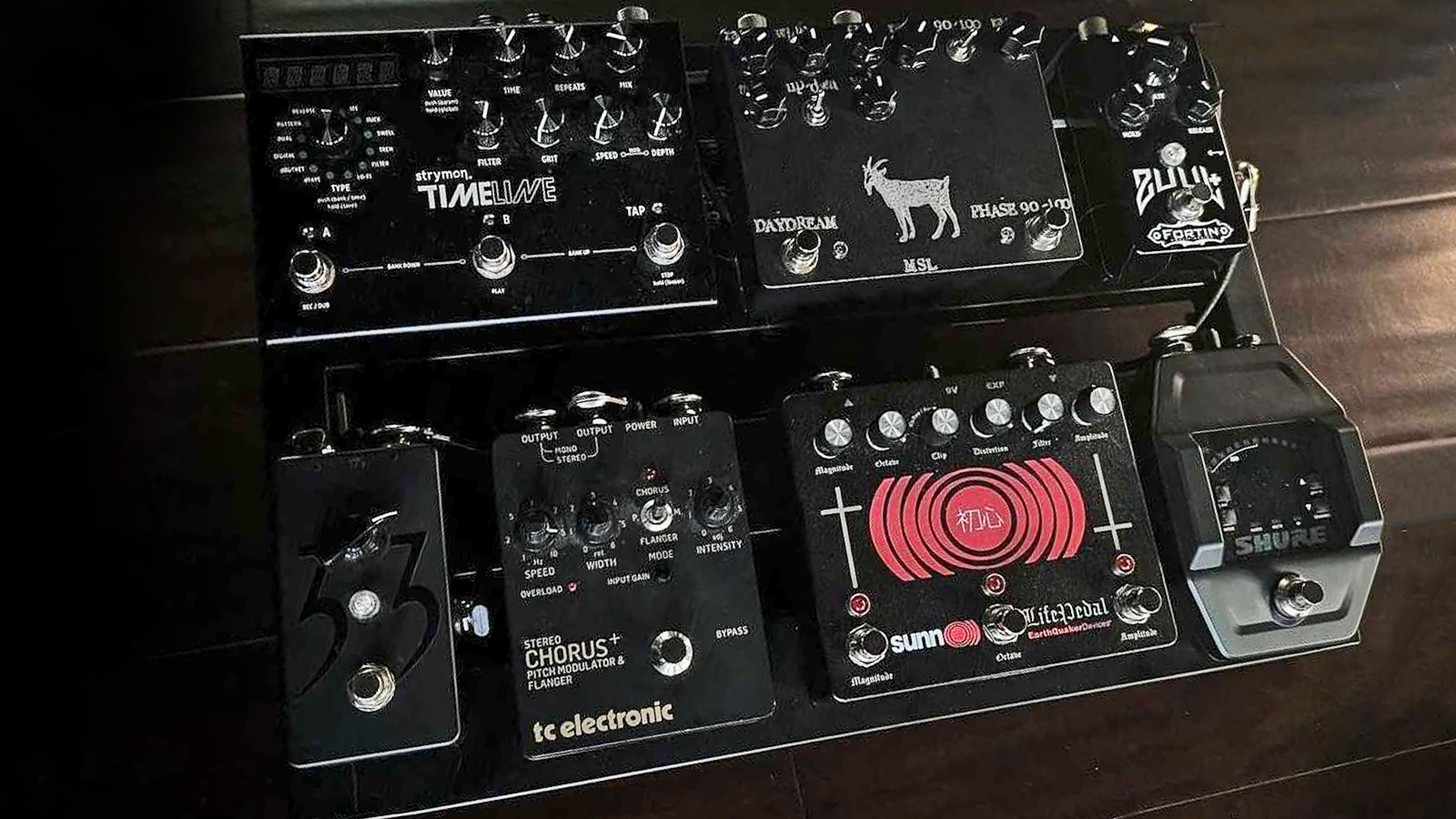
Moving on to pedals, and Lee likes to keep things fairly simple, preferring to have a modest (none-more-black) pedalboard with just a few effects – but his favourite may surprise you. Designed to meet the demands of extreme Swedish metal outfit, Meshuggah and not grunge-inspired alt-rock, this simple – yet devastating – boost is Lee’s tonal secret weapon.
“Maybe it’s because I was a metal kid, but this is not the pedal that you would expect to suit a band like ours, but it works out great. I use the Fortin 33 boost pedal, it's like the Meshuggah pedal.
When questioned about why he landed on this particular pedal, Lee disclosed that he’s tried just about every stompbox combination possible, and this one simply sounded the best.
“I don't know. I've gone through every f*cking boost pedal under the sun. Every few weeks, there's another one. Maybe this will take the top spot. It never beats the Fortin. I think because the Jubilee is kind of dark sounding and those Super Leads are kind of dark sounding, the Fortin just adds this thing. I don't know what it is. The Boss SD-1, strangely, was the closest. I guess the SD-1 plus a Marshall was always a classic – and you can kind of get that Fortin clank from it.
“I was always a Tube Screamer guy. It was always the 808s, but it's still kind of muddy into a Jubilee. But yeah, the Fortin works well. Also, the good thing with the Fortin is that I don't have to do any tap dancing. Normally, if I switch to a clean [channel], I kind of want it reasonably clean or have the option for it to be reasonably clean. But the Fortin has this little side jack, so when you click it on, it changes the channel on your amp for you. So it means on the heavy channel, it would go to the boost and then when you turn the pedal off, the boost would turn off and it would switch the amp. So that's kind of a game-changer.
“It cuts away a lot of bass, but it does this thing to the bass that I can't find another boost pedal that does. It kind of keeps the bass super tight-sounding at the same time."
Of course, Lee has a few more stomps that he relies on and he couldn’t help but give a shout-out to the other pedals on his board.
“So I've also been using one of those Sunn O))) Life Earthquaker Devices pedals at the moment. On the record, we used a Rat on the bass quite a lot. I used to have the ‘80s woodcutter Rat but this thing kind of does everything, man.
“It's just three types of Rat, it has the boost, and it has that octave thing, so you can kind of do the Billy Corgan octave tone.”
Lee dishes out some valuable vintage guitar advice
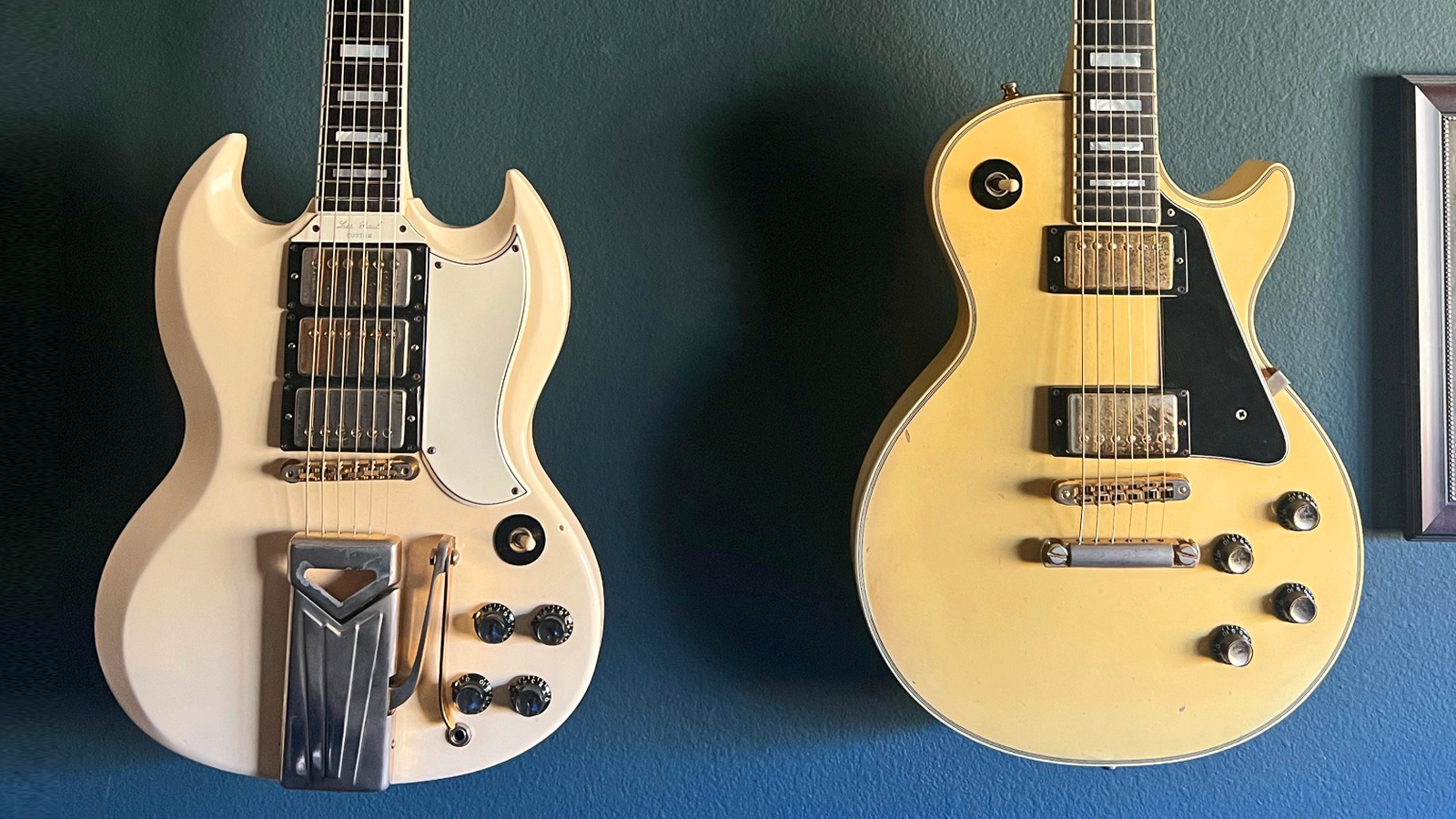
So we mentioned that in addition to being the singer and guitarist of Lowlives, Lee channels his love for retro guitars and amps into being the vintage guitar buyer for Guitar Center. Now, we know that many players love the idea of vintage guitars but don’t really know where to start. So we couldn’t pass up the opportunity to ask Lee if he has any tips for guitarists looking to venture into the vintage end of the market and what affordable vintage options he thinks make a great first buy.
Lee confesses that the vintage market is rather volatile at the moment, which makes it a little more challenging for newbie players to break in.
“The market is so tough at the moment. Like, for example, it’s a terrible time to buy Explorers. Explorers and SGs are actually kind of skyrocketing at the moment.
In terms of good [guitars] to start on. I mean, it used to always be just by ‘70s Les Pauls.
I know they get a bad rep, but I love ‘70s Les Pauls. I think I kind of love three-piece necks, as much as they're the cheapest ones you can buy. I prefer the tone, slightly.
“To people starting out buying vintage gear, old Les Pauls would be the way to go, but even the ‘70s Les Pauls now are a f**king stupid price. Like, ‘80s Les Pauls are even now ridiculous.
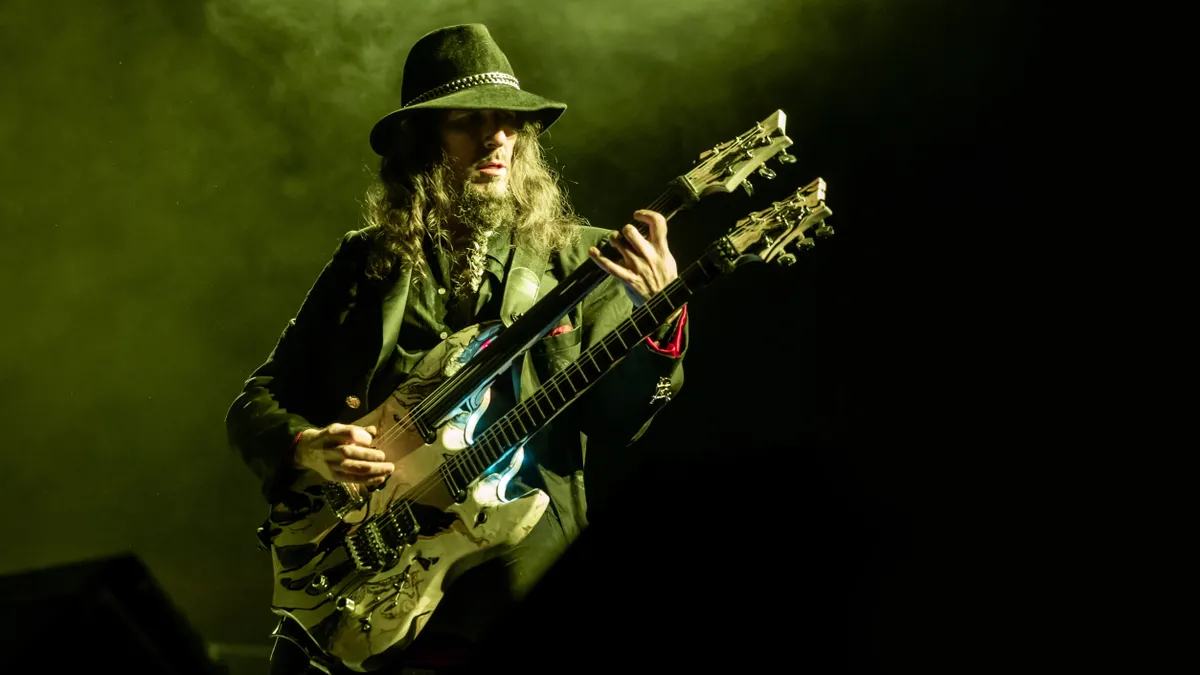
So maybe, for starting, if you can buy early ‘90s Gibsons, because they're, just starting to go through the roof at the moment. They were great guitars. Like, my first ever real guitar, like proper guitar, was a ‘96 or ‘97 SG Standard and I sold it years ago and regretted it instantly – it was such a good guitar.
“So maybe buy ‘90s Gibsons. It used to be buy Jazzmasters and Jags, but those are f**king stupid [prices] now. I got quite lucky a few years ago and kind of really got into them for a minute. And again, ended up trying to make them sound like Gibsons and it just never worked so I ended up getting rid of them. I used to route humbuckers into old Jazzmasters and now it's like, ‘Jesus, I wish I didn't do that’ because that's devalued enormously [laughs].
Yeah, that used to be the go-to, but those are stupid and way overpriced at the moment. Everything's ridiculous right now.
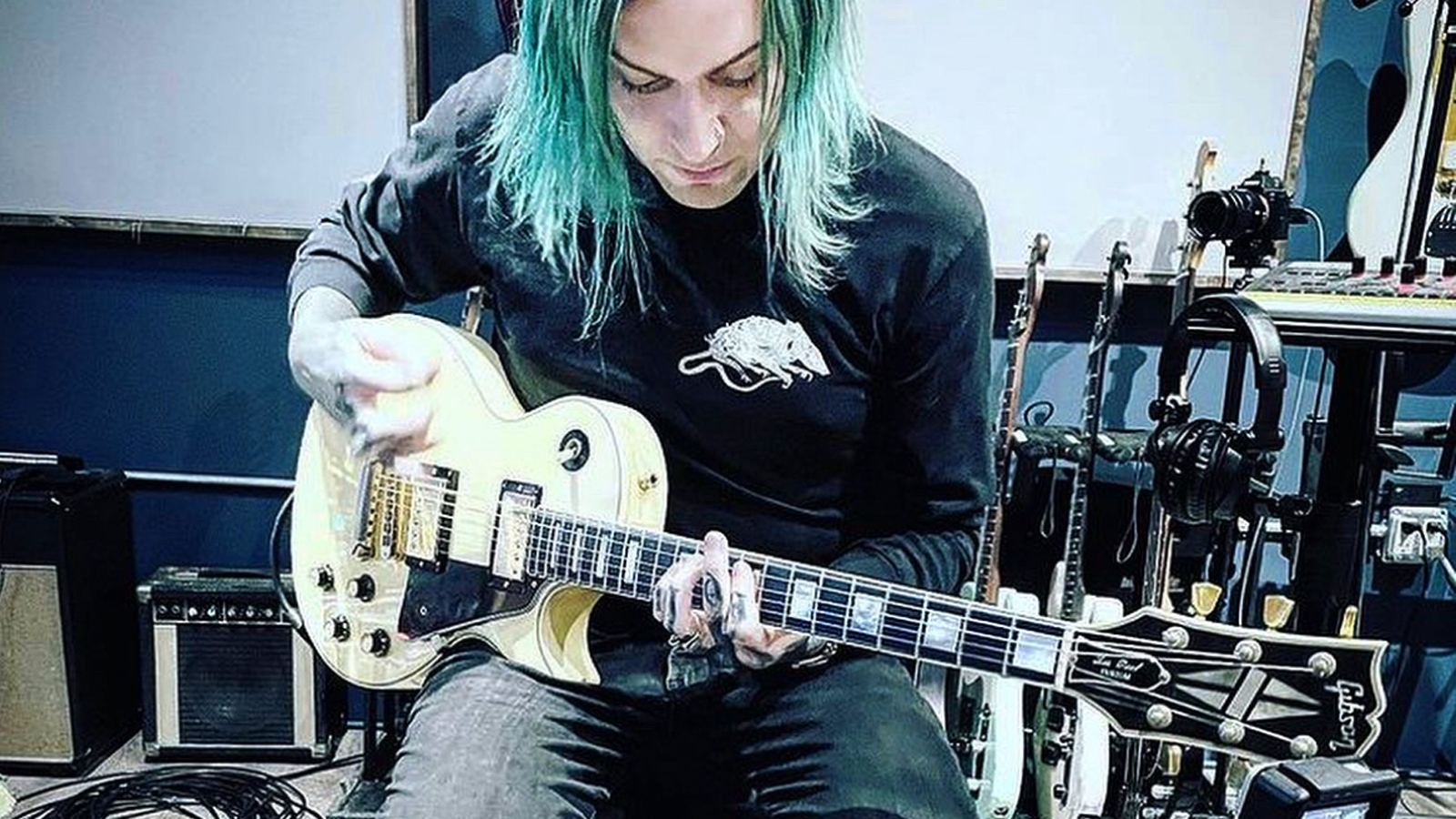
I recently had one that I sold to Slash for 13 grand, but I bought it for about three a few years ago
Speaking of guitar prices going through the roof and becoming completely unobtainable, Downer recalls recently selling one of his beloved Travis Bean guitars to Guns N’ Roses axe man and top-hat enthusiast, Slash.
“I went through a weird Travis Bean phase. I had quite a few of them and I think I also got lucky with those because when I was buying them they weren't ridiculously priced, but now they're just f**king insane.
“I recently had one that I sold to Slash for 13 grand, but I bought it for about three a few years ago. So the price of those is just going through the roof. It was a black Travis Bean; it was through a mutual friend who knew his tech.
“I’ve seen him use a black Travis Bean live but it's still the same old one that he's always used for slide. This one was the Artist, the carved one and I've not seen a photo of him using it since, but I remember thinking 13 grand is ludicrous.
“I only have one Travis Bean left, a white one that's over there [points behind the camera]. I love it to pieces, but it's 14 and a half pounds. I used it for a couple of years touring and didn't realise how it was ruining me. Like, I remember once at rehearsal, we stood up for three hours, and I remember thinking this thing is just too heavy.
“It's got to the point now, like, we're not playing posh, nice venues. We're playing grotty sh*tholes and just touring with a guitar that's worth that much money now is getting a bit scary. Every night I bring my guitars into the hotel. The fear of getting stuff stolen is the worst. That's my biggest fear in life."
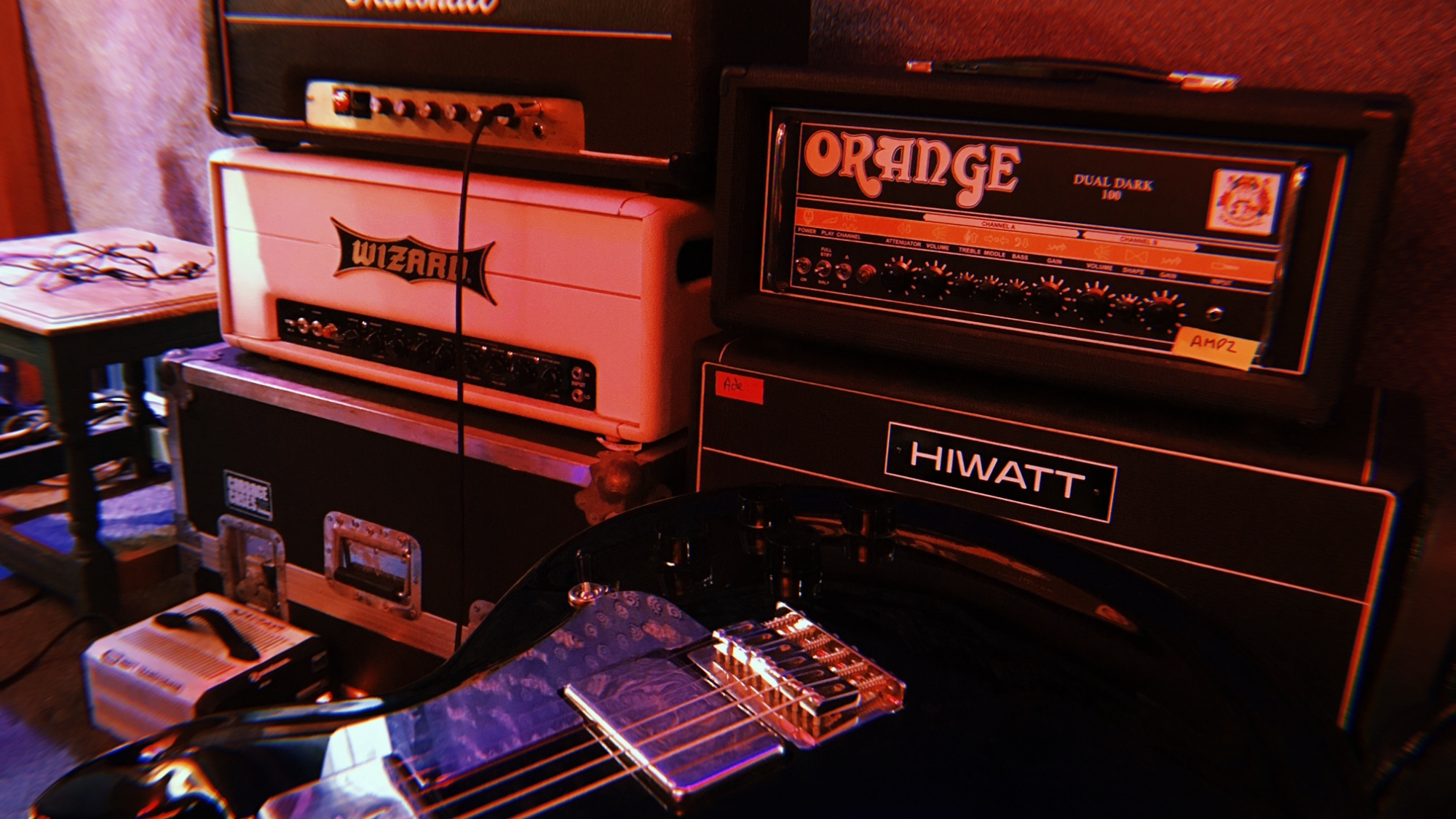
Buy one of those little black light torches. That's always handy
Circling back around to rookie vintage buyers and Lee offers up a few tips to help you understand the vintage end of the market a little better.
“I think the main thing is learning about finishes because there's a lot of people that get ripped off all the time that just buy a guitar and they think it's straight until someone's like, ‘Oh, that whole thing is refinished.’
“So buy one of those little black light torches. That's always handy.
“Working in guitar stores helps because you're going to see loads of guitars come through and then you can see what an original one should look like. Learn pot codes, learn pickups, learn cases. Cases is a big one because that's kind of a giveaway on a lot of guitars – what era it is. It's also good if you go to a guitar show and you see someone walking through with a case, you kind of jump on them to try and make an offer because you kind of know what's in the case [laughs].”
Lowlives debut album, Freaking Out, is due out 31 May via Spinefarm Records, and you can catch the band live at various festival slots around the world, including Download and Louder Than Life, as well as on tour with Atreyu.
For more information check out wearelowlives.com.
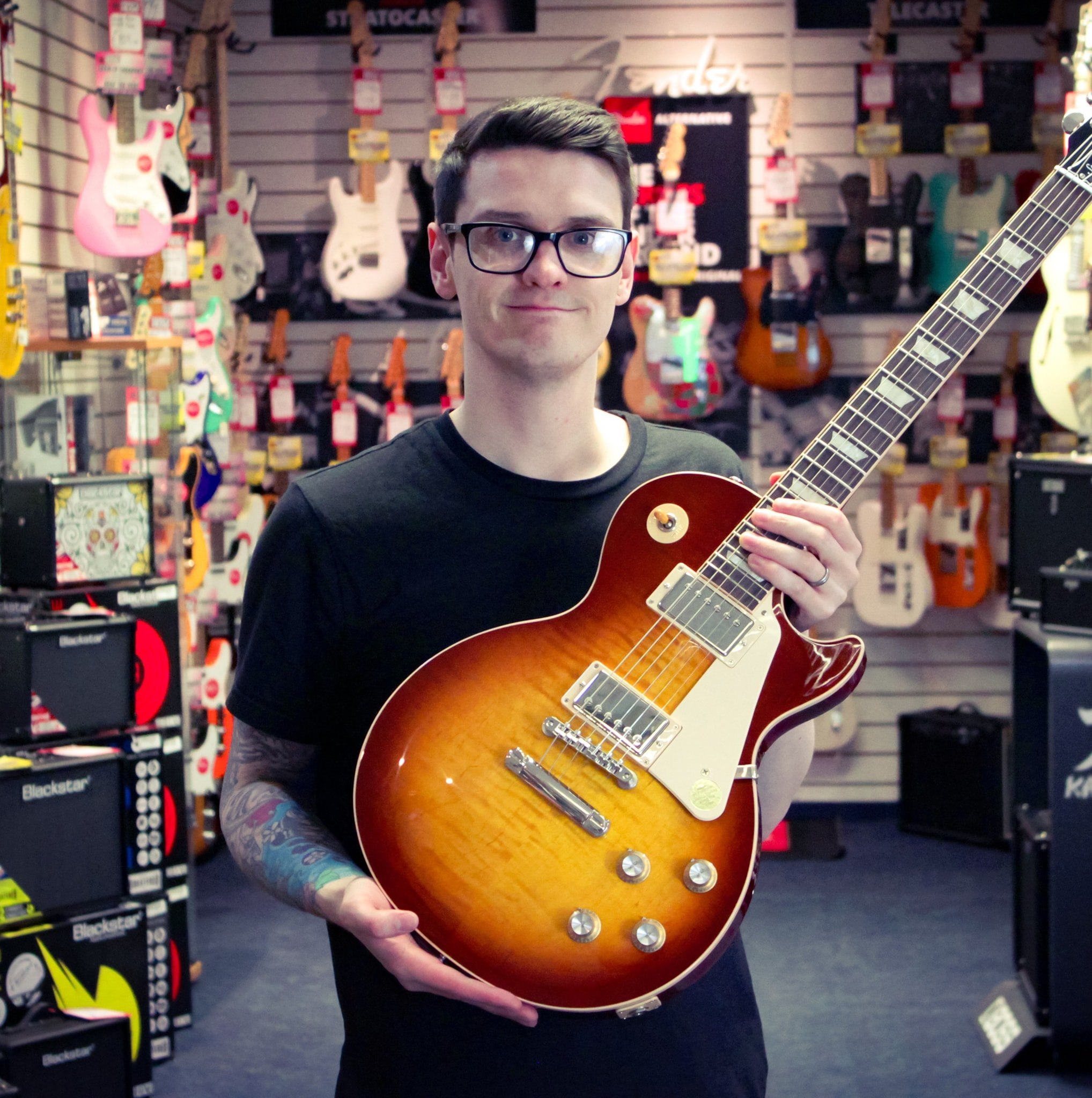
I'm a Senior Deals Writer at MusicRadar, and I'm responsible for writing and maintaining buyer's guides on the site. As part of my role, I also scour the internet for the best deals I can find on gear and get hands-on with the products for reviews. My gear reviews have been published in prominent publications, including Total Guitar, Guitarist, and Future Music, as well as Guitar World.com. I've also had the privilege of interviewing everyone from Slash to Yungblud, as well as members of Sum 41, Foo Fighters, The Offspring, and many more.
In a previous life, I worked in music retail, selling everything from digital pianos to electric guitars. I'm also a fully qualified sound engineer who holds a first-class Bachelor's degree in Creative Sound Production from the University of Abertay.




